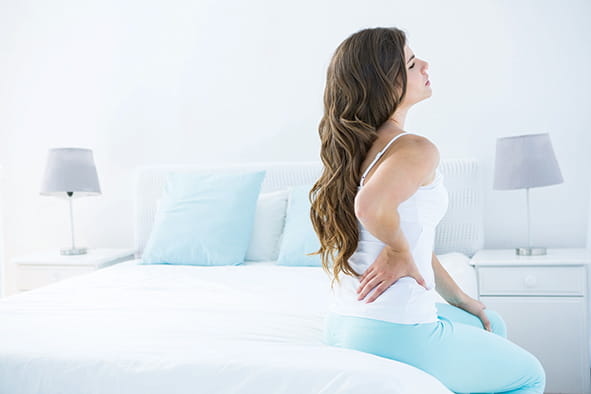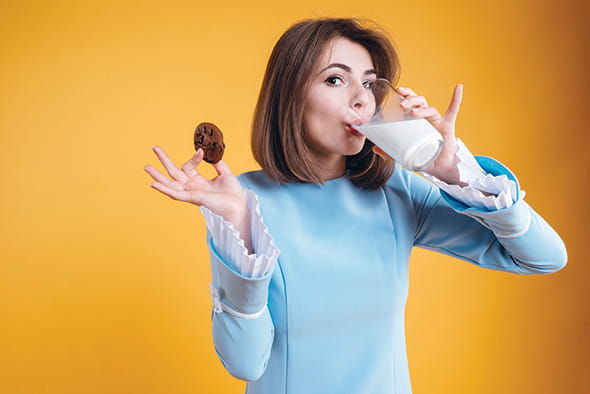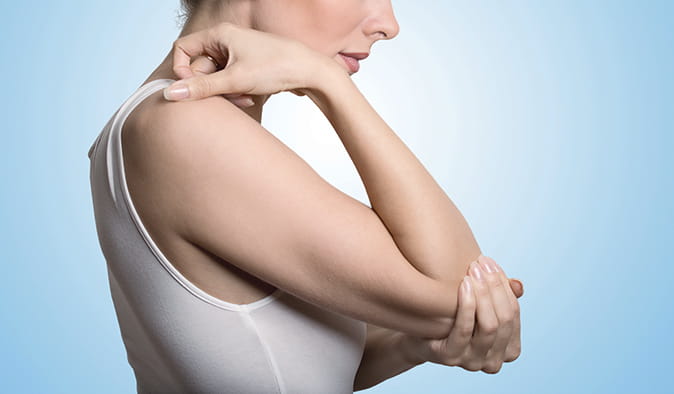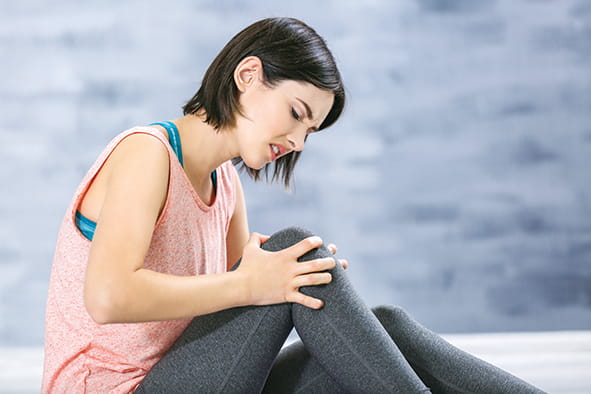Declining bone health is one of the side-effects of ageing. Unfortunately, it affects women more than men. But the good news is you can slow down this decline, with a balanced nutritional diet, exercise and supplements. Dr Santosh Shetty gives you a low-down on how to keep your bones strong and your joints flexible.

While the world spends a billion dollars on anti-ageing, skin rejuvenating treatments and creams, a less visible side-effect of ageing is unfortunately much ignored. We’re talking about the decline in bone and joint health that comes naturally with increasing age. Bone health is even more important if you are a woman. Research across the globe has proved that you’re at greater risk of osteoporosis if you’re a woman, because women have less bone tissue than men.
Throughout life, and especially as you get older, it is more and more crucial for women to keep their bones healthy and reduce the risk of fractures by preventing osteoporosis. According to researchers, Asian women, older than 50 or who have attained menopause, have reason to worry about their bone health. More so if they are smokers or consume excessive alcohol, have low body weight and do very little physical activity.
Bone health varies from woman to woman, and joint changes can vary from minor stiffness to severe arthritis. Breakdown of the joints may also lead to inflammation, pain, stiffness, and deformity. With age, bones can also become more brittle and may break more easily.
And this brings us to osteoporosis—a disease that makes bones fragile and more likely to break. Unfortunately, this is a common problem, especially among older women.
The good news is that although bone degradation may be inevitable, there is a lot you can do to slow down the degeneration and maintain good bone health. And now for the tough-to-follow advice: by exercising, making sure you get all nutrients via a balanced diet and taking supplements, you can successfully slow down the rate of degeneration considerably. The best age for a woman to start is before the age of 30, when the rate of bone remodelling is at its peak.
Tackle menopause
Bone mass or density reduces with age, and this is especially worrying for women after menopause. In the five-seven years following menopause, a woman can lose up to 20 per cent of her bone density. Talk to your doctor about menopause, Hormone Replacement Therapy (HRT) and your bone health. One way to figure out your bone health is to get your bone mineral density tested. A simple X-ray test called DXA measures bone mineral density and helps determine risks of osteoporosis and fracture.

Get your dose of vitamin D
A three-year-long analysis by a diagnostic laboratory in India has found that vitamin D deficiency is common among women across India. Seven out of 10 women were found to have vitamin D deficiency, which is known to cause osteoporosis or bone density loss. Known as the sunshine vitamin, vitamin D is a crucial vitamin, especially for women’s health. This is because vitamin D regulates the calcium levels in the blood, as well as levels of the mineral phosphorus, which also helps to promote healthy bones and teeth. Women in the age group of 19 to 70 should get an average of 600 international units (IU) of vitamin D a day. Once you turn 71, your vitamin D intake should increase to about 800 IUs each day.

Regulate calcium intake
Large amounts of calcium are absorbed by the bones and if your body has a deficiency of this mineral, it will lead to aches and pains in your joints. The recommended daily requirement for calcium is 1,000 mg during your 20s, 30s and 40s. But your need rises as you age. It is important to eat a well-balanced diet with plenty of calcium. Women need to be especially careful to get enough calcium as they age. Postmenopausal women and men over age 65 should take 1,200 mg of calcium. Dairy products, fish, dark leafy green vegetables or broccoli, almonds, dried figs, fortified tofu and soya milk are also calcium-rich choices when it comes to food.

Exercise regularly
A moderate exercise programme can help you maintain strength, balance, and flexibility. Women should consider starting weight-bearing exercises. To boost bone strength, try exercises that load or compress your bones. Running, jogging, high-impact aerobics, repetitive stair climbing, dancing, tennis and basketball are best for building bones. But if you have osteopenia, osteoporosis or arthritis, try walking or using an elliptical or other machine.
Chuck the bad habits
Loss of bone mineral density is associated with tobacco use and excessive alcohol consumption.
So quit smoking, and don’t drink in excess.
The writer is Joint Replacement Surgeon & Head of the Department, Thunga group of Hospitals & Consultant Orthopaedic Surgeon, SURANA group of Hospitals


